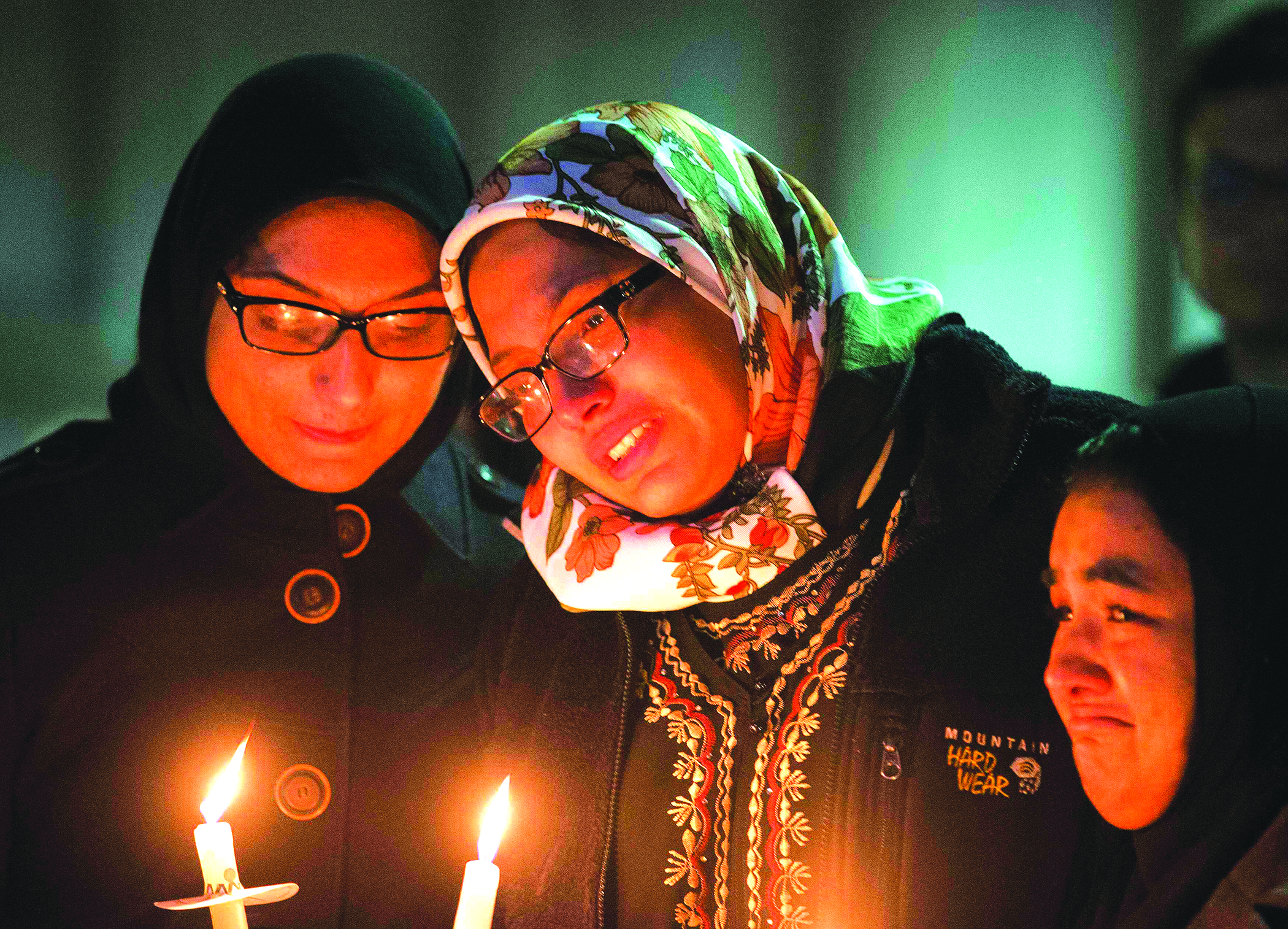Sheila Abdus-Salaam: First US Muslim African American Woman to Serve High Court Found Dead
by Aysha Qamar
The country’s first female Muslim and African-American women to serve on New York’s highest court was found dead in the Hudson River near Manhattan, according to reports on Apr. 11, 2017. Sheila Abdus-Salaam, an associate judge on the New York Court of Appeals, broke gender, race, and religious barriers.
Found fully clothed in the river around 1:45 P.M., it is not yet known how Harlem residing Abdus-Salaam ended up in the river or how long her body was there.
The judge was found wearing a gray zippered sweater, black sweatpants, gray T-shirt, and New Balance sneakers, officials said. Investigators do not believe that she had been in the river long.
According to reports, her husband filled her as missing earlier in the day. An investigation is ongoing with her death being treated as a suicide as there are no current visible signs of trauma or physical injuries suggesting foul play.
Abdus-Salaam, prestigious in her field, graduated from Columbia Law School. She began her career at East Brooklyn Legal Services and continued to rise until she was elected to the New York Supreme Court in 1993 and then appointed to the Court of Appeals, the state’s highest court, by Gov. Andrew Cuomo in 2013.
In nominating her to the highest court in 2013, Cuomo praised her “working-class roots” and her “deep understanding of the everyday issues facing New Yorkers.” Her nomination was part of a push by Cuomo to diversify the court.
Growing up in Washington, as one of seven children in a poor family, Abdus-Salaam became a public defender in Brooklyn, often representing people who could not afford a lawyer.
With over 25 years of experience, Abdus-Salaam was well known for being of the most reliable and for her liberal leanings and regularly siding with the poor and vulnerable individuals.
In a 2014 interview about black history, Abdus-Salaam stated that she had become interested in her family’s origins as a young girl and upon researching discovered that her great-grandfather was a slave in Virginia.
“All the way from Arrington, VA., where my family was the property of someone else, to my sitting on the highest court of the State of New York is amazing and huge,” she said. “It tells you and me what it is to know who we are and what we can do,” Abdus-Salaam had said.
In one of her most significant recent decisions, Abdus-Salaam had said the ruling on Brooke S.B. and Elizabeth A. C.C., expanding the definition of what it means to be a parent, specifically for same-sex couples.
The existing definition, she wrote, had become “unworkable when applied to increasingly varied familial relationships.” She ruled, “where a partner shows by clear and convincing evidence that the parties agreed to conceive a child and to raise the child together, the non-biological, non-adoptive partner has the standing to seek visitation and custody.”
This summer case was marked as one of the biggest rulings Abdus-Salaam had made.
According to reports, police are still working to piece together a timeline of the events between Tuesday morning, when she was last seen to when the body was found. Police have determined.
Police have determined that the judge’s metro card was last swiped on Monday evening at a subway stop in midtown Manhattan.
Many mourn the dead of Abdus-Salaam. [She was] “a trailblazing jurist and a force for good,” Cuomo said in a statement on Wednesday.
“Her personal warmth, uncompromising sense of fairness and bright legal mind were an inspiration to all of us who had the good fortune to know her,” Chief Judge Janet DiFiore said.
“I’m deeply saddened at having lost a dear friend and colleague, and the court has suffered a terrible blow,” Jonathan Lippman, who once served as the chief judge of the state Court of Appeals from 2009 to 2015, said in a statement to the New York Post.
While the investigation continues enforcement officials have begun to look into the judge’s familial history. Abdus-Salaam lost her mother last year following the loss of her brother to suicide three years ago. With the contemplation of suicide, investigators continue to look into why, as there is currently no information available.
Corrections in some reports have been made to say that Sheila Abdus-Salaam was the first African American woman to serve on New York’s highest court, as it is not entirely clear whether she converted to Islam.


















2017
1,108 views
views
0
comments